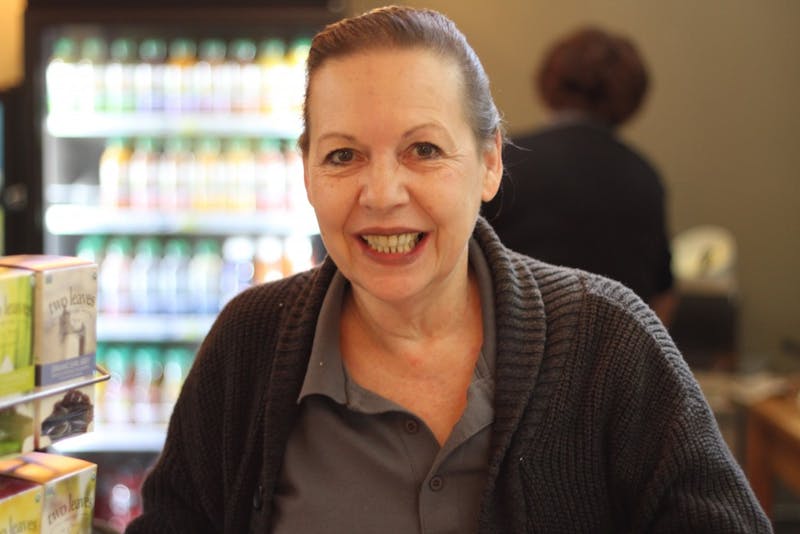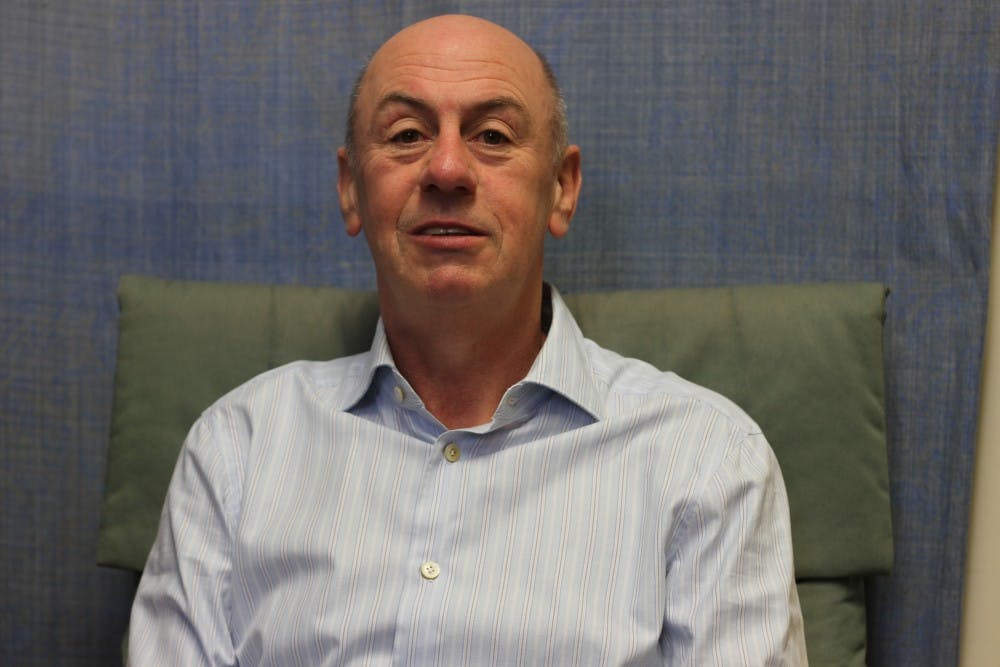Beneath James Baillie’s feet is a 60-year-old handcrafted rug from Iran. None of the rug’s lines are symmetrical and no two colors are exactly the same. The walls of his office are lined with rows of books, some with his last name printed on the spine.
Baillie can be described simply by the things in his office — the rug that shows his love for studying different cultures, his books inspired by Scottish philosopher David Hume and the world news on his computer screen.

Before UP, Baillie spent his early life traveling and trying to figure out what he wanted to do for a career. He hasn’t always known what he wanted to do or who he wanted to be, it was easier for him to eliminate what he didn’t want to do through the experiences he had while traveling.
Baillie found purpose from the lack of opportunity afforded to his family in the past. No one in his family attended college, and he was determined to be the first.
“I did not want to live how they lived, and I mean that with no disrespect to my family. I was always interested in ideas and I wanted to experience the world,” Baillie said. “I wanted to escape from what I saw as a very limited existence.”
Baillie said that in Scotland, only five percent of students choose to go to college. Baillie joined that five percent when he received a full grant to attend Glasgow University in 1975.
The first-generation college student never gave much thought to a career, before college or after he graduated. He postponed his doctoral degree for seven years, instead choosing to hitchhike around England with one of his favorite bands, Henry Cow, and practice acupuncture in England and Scotland.
After helping Henry Cow on their tour by carrying equipment and providing feedback, Baillie was invited to work with one of the band members at an independent record company in London. His love for music and dream of becoming a guitar player encouraged him to continue in the music business.
Baillie was also interested in studying different cultures. Once he finished with the record company, he went to the Leamington Spa in London to study and practice acupuncture.
“I became fascinated with it, ‘How does it work,’ you know?” said Baillie. “What made me decide to stop doing it was that I realized that my main motivation was intellectual, rather than wanting to help people. I mean, I wanted to help people, but I realized my interest was more theoretical.”
Baillie took his interest in acupuncture and began to read and study the philosophy of science — a branch of philosophy concerned with implications of science. He got in touch with former professors at Glasgow and was encouraged to complete a masters degree. He initially focused on applying ideas of science to questions of medicine relating to his work with acupuncture.
Though Baillie originally signed up to study philosophical science, he quickly abandoned that specific area of study after being reintroduced to philosophy studies. He moved away from philosophy of science to study more mainstream philosophical issues, and shortly after, moved into doctoral philosophy work.
In England, a doctoral degree usually takes seven years to complete. Baillie finished his doctorate in 16 months.
“Not because I’m brilliant, I’m not,” said Baillie. “I was just really anxious over time about being away for seven years and I was very, very anxious about earning a living, so I just wanted to get it done as quickly as possible.”
After finishing his doctorate, Baillie was encouraged by his American PhD advisor to join the American Philosophical Association. Baillie went for it, citing Margaret Thatcher, the Prime Minister of the United Kingdom from 1975 to 1990 who caused a time of high unemployment, as a main reason.
The job market in the United States was Baillie’s best hope for finding a job. Baillie found American newspapers that advertised job openings in college philosophy departments, which led him to his job at UP in 1990.
Baillie’s journey to a career at UP took many twists and turns, from practicing acupuncture to working with bands and record companies to finishing a doctorate in a quarter of the usual time.
Baillie has now been at UP for 26
“Quite a few gradual changes (happened), all for the better. The quality of students continues to rise, and the quality of faculty is incredible,” said Baillie.
Having spent half his life in Portland now, he describes Portland as “the first place that has ever really felt like home.”








